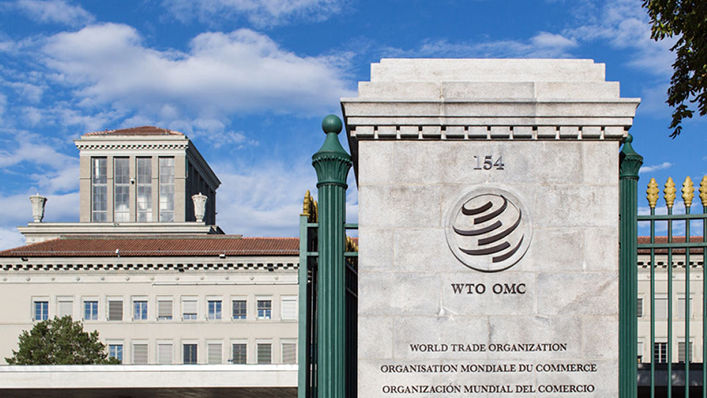Global Health
On May 5, U.S. Trade Representative Katherine Tai issued a statement announcing the Biden Administration’s support for waiving intellectual property protections for COVID-19 vaccines. Ambassador Tai acknowledged the Administration’s general support for intellectual property protections, while underscoring that “the extraordinary circumstances of the COVID-19 pandemic call for extraordinary measures.” To that end, Ambassador Tai expressed the Biden Administration’s willingness to “actively participate in text-based negotiations at the World Trade Organization” regarding a Trade-Related Aspects of Intellectual Property Rights (TRIPS) waiver for COVID-19 vaccines.
Ambassador Tai’s statement recognizes the continued need for access to COVID-19 vaccines, especially as cases and deaths increase in India and other low- and middle-income countries, but raises several key questions in advance of the next TRIPS meeting on June 8-9.
What are next steps for negotiations on the TRIPS waiver?
In October 2020, India and South Africa proposed a temporary waiver from the implementation, application, and enforcement of TRIPS provisions regarding copyright and related rights (Part II, section 1), industrial designs (section 4), patents (section 5), and the protection of undisclosed information (section 7). The stated purpose of the proposal is to support domestic manufacturing efforts for COVID-19 medical products, including diagnostics, therapeutics, and vaccines, and to address supply chain pressures during the pandemic.
WTO decisions require a consensus of its 164 members. The proposed text from India and South Africa has not gained widescale support since its introduction last year. This may be because of its broad scope, which would remove protections for patents, copyright, industrial designs, and undisclosed information “in relation to prevention, containment or treatment of COVID-19” and until “widespread vaccination is in place globally, and the majority of the world’s population has developed immunity.” After ten meetings and seven months, proponents of the waiver have agreed to revise the text of the October proposal, and requested that Ambassador Dagfinn Sørli, chair of the TRIPS Council, hold an unscheduled meeting in late May to discuss the revised proposal before the next formal TRIPS meeting on June 8-9.
U.S. support for a waiver may also alter the trajectory of negotiations. The U.S. has been one of the most vocal advocates of strong IP protections, and it remains to be seen whether support for a waiver will be accompanied with limitations on the broad strokes of the initial proposal, especially given the innovative nature of the mRNA technology used in some vaccines.
For IP rightsholders, it will be important to carefully consider how the waiver’s terms would affect long-term business operations, given that proprietary materials and information cannot be pulled back after they have been made public. This is especially critical for mRNA-based vaccines, due to the broader business value of the technology platform for other vaccines in development.
How might WTO member states approach negotiations?
While the U.S. and Europe are often the strongest advocates of IP protections, approaches to protections for COVID-19 vaccines are varied. After Ambassador Tai’s statement, a German government spokesperson warned the U.S. position would pose severe complications and continued via e-mail, “the limiting factor for the production of vaccines are manufacturing capacities and high quality standards, not the patents . . . The protection of intellectual property is a source of innovation and this has to remain so in the future.” While Ursula von der Leyen, the president of the European Commission, voiced her support for the U.S. position, she cautioned that the priority should be to increase vaccine production.
Although many low- and middle-income countries support the waiver, the Bolsonaro administration in Brazil opposed the measure in early discussions. Brazil has been particularly impacted by the COVID-19 pandemic and has experienced a sharp increase in cases over the past month, which may influence its position as waiver discussions continue.
The WTO has faced challenges as a consensus-based negotiating body, and EU officials warn that negotiations will likely take months. European and U.S. innovators are unlikely to completely forgo patent protections for mRNA technology, and consensus for partial waivers will involve lengthy discussions with member states. EU leaders will meet on May 7-9 in Portugal to continue discussions on vaccine waivers, and waiver proponents are expected to bring revised waiver language to WTO discussions at the end of May.
How would such a TRIPS waiver be implemented and enforced, including at the national level?
The final text of any waiver will dictate subsequent implementation and enforcement. At present, the India/South Africa proposal broadly releases WTO members from their obligations under TRIPS, vis-à-vis the aforementioned provisions, for purposes of both existing and new protections. It does not specify for how long.
Depending on the nature of a waiver, WTO members could potentially implement it at their discretion, likely requiring legislative, regulatory, or other actions in each jurisdiction. The timeline for doing so, consistency across jurisdictions, and ongoing reporting obligations remain unclear. Notably, WTO members would be exempt from WTO dispute settlement provisions.
In contrast to compulsory licensing under TRIPS, the broad proposal from India and South Africa would not require compensation for IP rightsholders. Moreover, any lack of clarity or inconsistency regarding scope or timelines, as well as the steps and resources needed for technology transfer, would likely be problematic, not least for any ongoing contractual negotiations.

Are there other options—a so-called “third way”—that could be considered, instead of a TRIPS waiver?
WTO Director-General Ngozi Okonjo-Iweala has suggested a “third way” as a compromise to increase access without the need for a waiver. Under this approach, pharmaceutical companies would execute licensing agreements with low- and middle-income countries to share vaccine technology “within the framework of multilateral rules, so as to encourage research and innovation while at the same time allowing licensing agreements that help scale up manufacturing of medical products.”
According to DG Okonjo-Iweala, this third way would drastically increase manufacturing capacity while providing transparency on contracts, including pricing. IP rightsholders should carefully consider how this might impact their contracting strategy.
Others have suggested a focus on easing export restrictions and tariffs which, in principle, could accelerate global distribution of existing COVID-19 vaccine doses without the need for a waiver.
Regardless of the outcome, how might this process impact the WTO more broadly?
The WTO has demonstrated the ability to coalesce and implement TRIPS flexibilities in the past. In 2001, the WTO adopted the Doha Declaration on the TRIPS Agreement and Public Health, which affirmed the ability of member states to pursue IP flexibilities to increase access to essential medicines in certain circumstances.
The current waiver negotiations, and their timeline and success, will almost certainly have a long-term impact on the WTO, including in its role as a negotiating body and in broader global policy discussions on health and other issues.
Many unknowns remain as to the path of potential WTO negotiations. The evolving situation will require nimble and creative thinking by governments and companies across sectors, close attention and engagement should text-based negotiations begin, and strategic efforts to mitigate potential risks over the long-term. Both in the short and long-term, it is unclear how the U.S. will seek to reconcile its support for a waiver with its general support for intellectual property protections, as well as broader goals, such as promoting U.S. innovation, manufacturing, and global competitiveness.
Stakeholders will need to consider potential challenges for rightsholders of a broad range of intellectual property, including IP with only tangential links to the COVID-19 pandemic, the demand to address quickly the global public health emergency, and the related reputational and legal risks.


